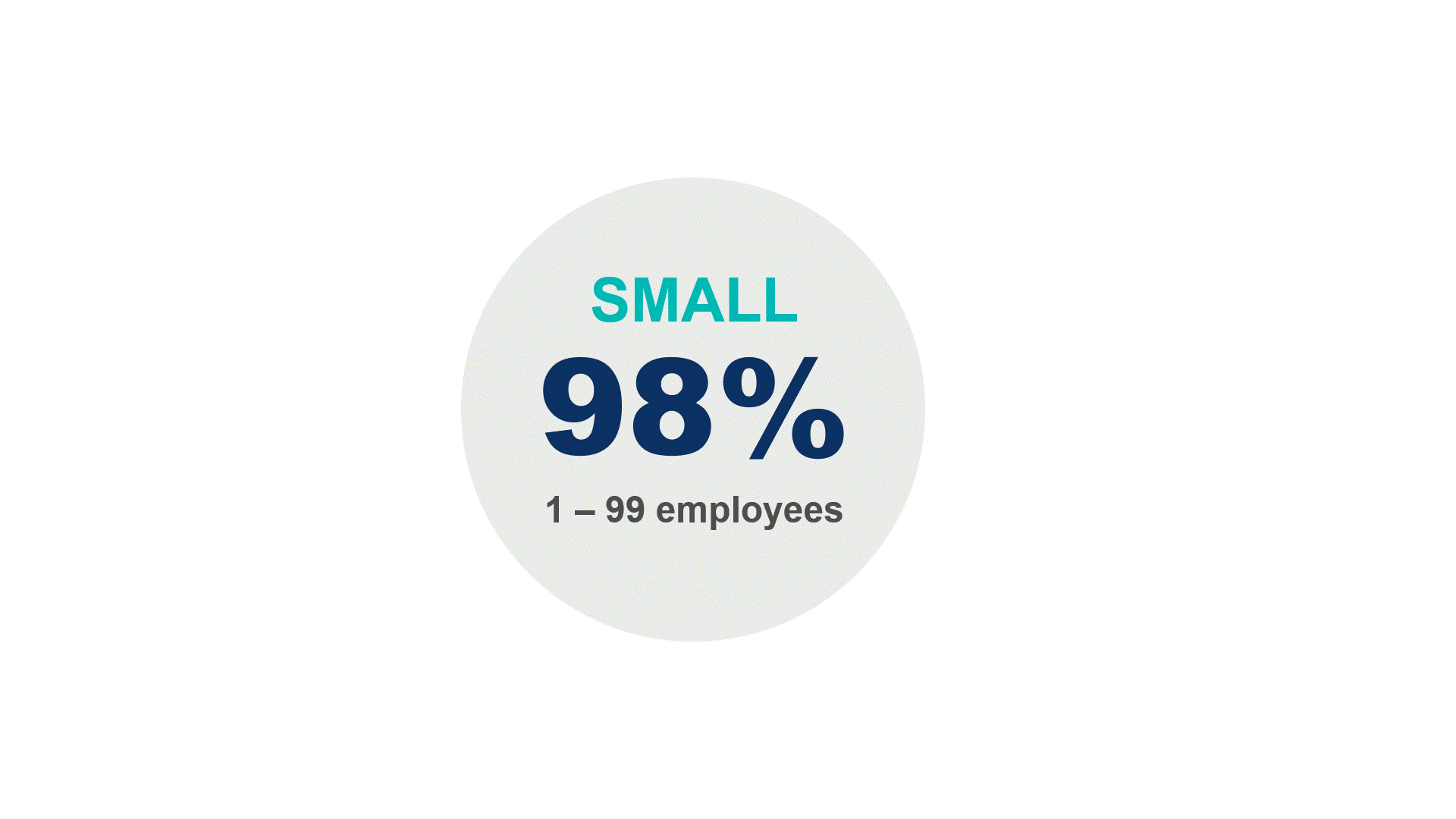Blog /
What We Heard at The State of Small Businesses in Canada Virtual Event
What We Heard at The State of Small Businesses in Canada Virtual Event
On January 29, attendees from across Canada joined us for a very special virtual event.

On January 29, attendees from across Canada joined us for a very special virtual event, The State of Small Businesses in Canada: Navigating Click-and-Mortar Opportunities. Hosted in partnership with Amazon Canada, the event corresponded with the launch of the new report from the Business Data Lab, A Portrait of Small Business in Canada: Adaption, Agility, All at Once.
We were honoured to have Minister of Small Business Rechie Valdez join us to discuss the importance of timely data for small business owners and the federal programs available to help small businesses succeed. Following Minister Valdez’s address, Marwa Abdou, report author and Senior Research Director, Business Data Lab, broke down the report’s key findings, after which attendees heard from a panel of small business owners about their experiences navigating the complex economic and digital landscape.
Panellists:
- Sean Alexander, President and Founder of KAILANI
- Erin Bury, Founder and CEO, Willful
- Jenn Harper, Founder and CEO of Cheekbone Beauty Cosmetics, Inc.
- Abby Malchow, Manager of Small Business Partnerships, Amazon
- Rebecca Robins, RSSW, Owner, Whole Home Beauty Drywall and Painting

The Tools Are Out There
Small businesses don’t have to tackle today’s challenges on their own. Whether looking for information, financing or mentorship, Minister Valdez provided many examples of available tools designed to help entrepreneurs reach their goals and transition to a “click-and-mortar” reality.
- Canada Digital Adoption Program
- Business Benefits Finder
- The Business Data Lab’s Business Conditions Terminal
- Canada Small Business Finance Program
- Business Development Bank of Canada
Opportunity Amidst Uncertainty
With 98% of all businesses in Canada falling under the small business category and 57% of those under the micro business (1-4 employees) category, unpacking the realities of small business is vital for greater understanding and evidence-driven policy updates.


Five key highlights from the report:
- Small business is big business in Canada.
- Canadian businesses are smaller, more diverse and more resilient than we thought.
- Having an omnichannel presence is no longer a luxury but a necessity.
- While there are several bright spots in the data, more work is needed to help small businesses.
- Targeted policy should be data-driven and underpinned by diversity, equity and inclusion.
For a full breakdown of the report’s highlights, read our summary blog.
The Power of Data
The importance of timely, relevant and regional data for small businesses cannot be understated. Up-to-date insights gives Canadian small businesses the information they need to make informed decisions and improve their performance. However, it can take some work to get good at understanding data or to recruit the people who can.
Omnichannel Presence is Essential
With consumer shopping habits changing — 83% of retail shoppers conduct online research before they visit a store, and 8% shop online from a retailer with a physical location nearby — small businesses need to have omnichannel presence and an online payment solution. Our panellists’ advice to attendees is to start with a high-quality website and to research the best tools and channels for getting in front of the desired audience, whether that’s social media, Amazon or physical retailers. Small businesses looking to expand should consider increasing their capacity through cloud technology, like Amazon Web Services.
Value-Based Shopping
Value-based shopping is becoming more and more pervasive, especially among Gen Z, and that includes shopping from small businesses. According to Abby Malchow, 60% of Amazon sales are from independent sellers that are small- and medium-sized enterprises. To help users find small businesses, Amazon provides a small business search filter and badge.
Go Where Your Customers Are
Advertising has changed but some things remain the same — and that’s going where your customers are. Do some research into the available channels, traditional or digital, to figure out where you want your product to go and where your customers are. Not everyone uses the same social media platforms, and TV ads, shopping channels and traditional partnerships with relevant stakeholders can all be beneficial strategies.
Interested in attending an event like this one? Check out all upcoming hybrid, virtual or in-person events on our website.
Other Blogs

Policy Matters: Revisiting the 3 Most Popular Topics of the Year

Vaccines: A Potential Key to Unlock Many of Canada’s Healthcare Challenges




